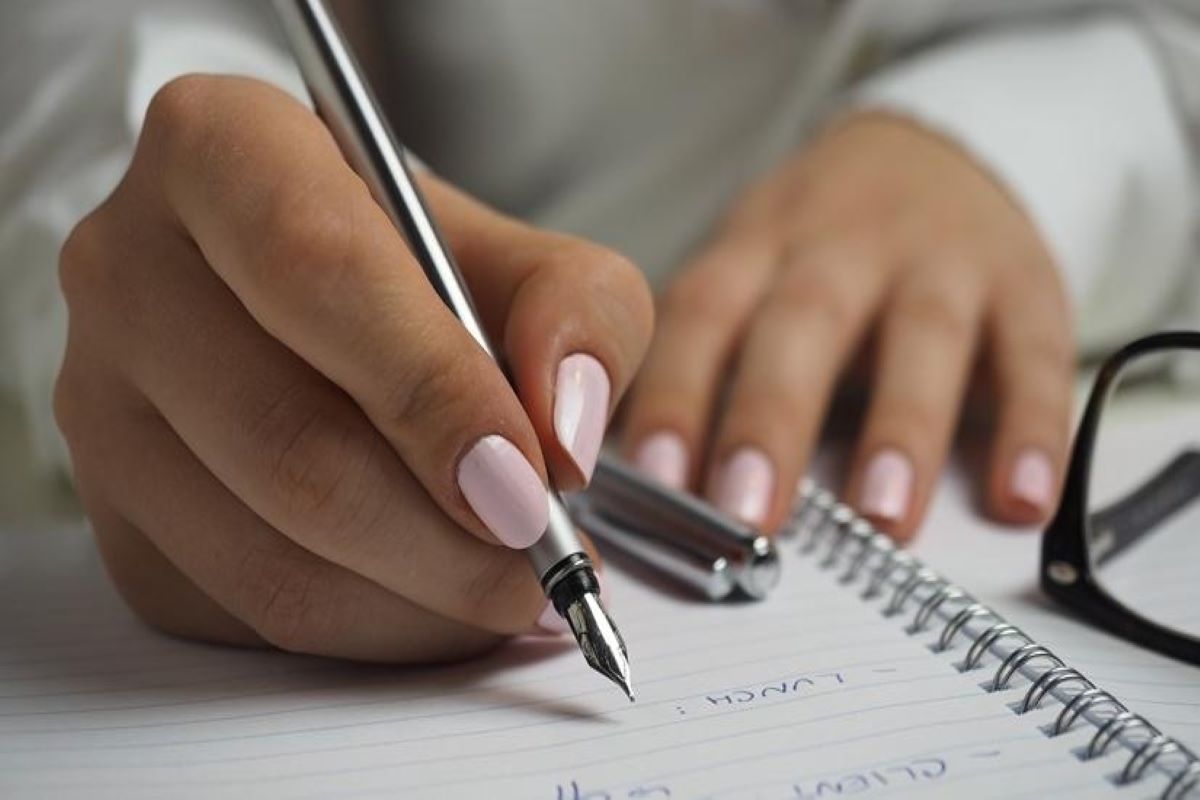Exploring land through art
Kolkata’s art landscape recently welcomed a fresh voice with the solo exhibition of an emerging artist, Priyanka Bhattacharjee, titled Rutted Terrain.
To ensure consistency and legibility across your writing, there are several points which you should note.
IANS | New Delhi | January 24, 2021 6:47 pm

(Picture: IANS)
If you have ever received a comment about your ‘bad’ handwriting, fret not, chances are that it might not be you but the pen that you used.
Unlike what most people commonly believe, not all pens are equal. Pens don’t only vary in quality but also in their design and how they interact with you and your handwriting style. Finding the perfect pen will have an immediate effect on the look of the handwriting and in some cases on the legibility of the script.
Advertisement
Eirini Petratou, Senior User Research Manager, BIC World examines the different factors that can help improve handwriting. While multiple factors can affect the style of one’s penmanship, the most important one to note is the consistency and legibility of characters. It does not matter if your character size is large or small, or if it’s cramped or spaced out or slanted, ultimately as long as there is uniformity across the shapes and each character is clear and legible, the handwriting will have its unique style.
Advertisement
To ensure consistency and legibility across your writing, there are several points which you should note.
Grip Pressure: It’s important to be able to naturally maintain a consistent pressure while gripping a pen. This has a bearing in terms of having consistency over a longer period, as well as the general flow of your handwriting. It is important to know that the tighter the pinch grip on the pen, the faster your muscles tire and the more inconsistent your strokes get.
PRO TIP – If you are a person who naturally tends to grip tighter, a pen with a thicker barrel or with a padded grip, would be more suitable since less counterpressure is felt when your fingers are not trying to squeeze around a thinner surface.
But while choosing the correct thickness of a pen, might help in terms of the tiring of your fingers, it does not address a key factor that influences the amount of pressure that you apply e that of, balance and a sense of grip. Different people, writing with the same pen, might have a different outlook to whether the pen feels balanced or is slipping in their hand which impacts the pressure level applied to grip the pen.
Nail type: Interestingly, research done by BIC Cello indicates that your fingernail shape also affects the amounts of pressure that you apply while holding a pen. People with shorter square nails should typically prefer thicker circumference pens, while thin circumference pens are better suited for those with longer cylindrical nails.
Length of the pen: You might have often noticed that several people tend to affix the pen cap to the back of the pen while writing e an action that immediately increases the length of the writing instrument as well as acts as a counterweight at the top. This sense of balance and weight is not only linked to the amount of pressure applied to grip the pen but more importantly also directly correlated with the amount of pressure that is applied on the paper itself. Choosing a pen, whose weight, weight distribution and shape, will suit the amount of pressure that you apply on the paper, will immediately affect the consistency of the thickness of your letters and the fluidity of your writing.
Ink Type: Another factor that is associated with the amount of pressure that you apply to the paper, is the type of ink that you use. Fountain pens, owing to the lower viscosity of the ink, require a significantly lower amount of pressure to be applied, with ballpoint pens being at the other extreme. The smoother the pen glides on the paper, the more control is required to maintain consistency, and where more pressure is required to be applied between pen and paper, the margin of error to maintain consistency automatically increases. The speed at which you write also correlates to this point.
The viscosity of the ink and the thickness of the nib/ink-head is also relevant while considering the size of your characters. Very simply, if the size of your character is smaller, using a pen with a thinner tip will make the characters more legible and distinct, whereas if your characters are large, then a thicker tip will result in better-formed characters will lesser white of the paper is visible.
Ultimately, the perfect pen for you would be one which after taking into account each of the factors mentioned above, suits your own individual writing style. Experiment with different pen types, and once you have found the right pen, you will immediately notice a dramatic improvement in even the sprawliest of handwriting.
Advertisement
Kolkata’s art landscape recently welcomed a fresh voice with the solo exhibition of an emerging artist, Priyanka Bhattacharjee, titled Rutted Terrain.
Art can transform spaces, ignite conversations and preserve cultural heritage.
Padma Shri awardee Prathibha Prahlad, a celebrated Indian classical dancer, has mesmerized audiences globally with her artistry and vision. Founder of the Prasiddha Foundation, she has led it for over four decades, setting new standards in dance and artistic excellence.
Advertisement
